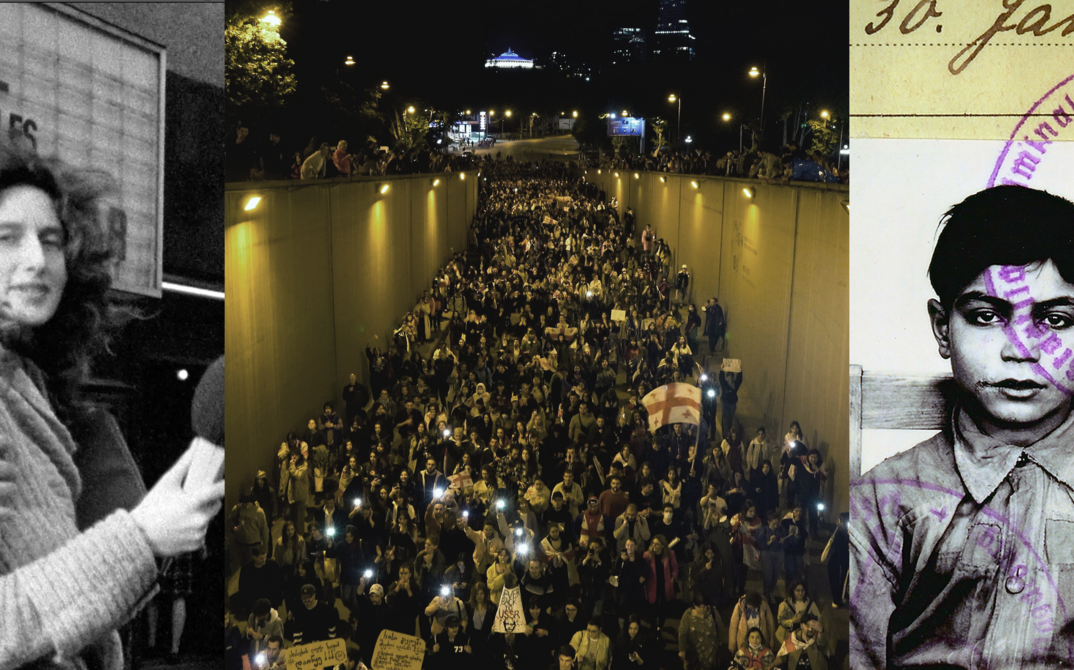In the second year headed by Barbara Wurm, the Forum Special is once again showing a program of historical and current films, curated around a set of related themes. The selection corresponds with the Forum main program and confronts the devastating state of the present by taking a conscious look back at the past.
While last year’s selection was conceived around the motto “Relations & Resistance” and was dedicated to quieter voices of political resistance from feminist, anti-patriarchal perspectives largely stemming from older generations, the 2025 Forum Special is entitled “Open Wounds, Open Words” and forms a logical continuation of these programming ideas, turning its attention this time around to the positions of the younger generation: growing up, youthful awakenings, becoming an adult and part of society—in contexts marked by cultural norms, social inequality and political injustice.
Two 4K restorations will be celebrating their world premiere at the Forum: DAS FALSCHE WORT (The Lie, 1987) by Katrin Seybold and Melanie Spitta, a milestone in addressing and coming to terms with the crimes committed against the German Sinti that is narrated from the Sinti point of view, restored by the Filmmuseum München, and IRACEMA, UMA TRANSA AMAZÔNICA (Iracema, 1976) by Jorge Bodanzky und Orlando Senna, a documentary/fiction hybrid made under the banner of the Brazilian Cinema Novo which pointed out the fatal nature of the combined exploitation of the environment, women and Indigenous peoples decades ago already.
These two titles are screening alongside three current works that draw on archival footage: THE LONG ROAD TO THE DIRECTOR’S CHAIR, a roughcut-documentary made by then-28-year-old Vibeke Løkkeberg that documents the First International Women’s Film Seminar held at the Arsenal cinema in Berlin in 1973 and has now been reconstructed 51 years on using a sound recording found in the archive to create a true manifesto of feminist film history; Tamara Stepanyan’s MES FANTÔMES ARMÉNIENS (My Armenian Phantoms), an intimate dialogue with Soviet Armenian film history that reflects on both the death of the director’s father, a famous actor, as well as the start of her own filmmaking career; and finally SCARS OF A PUTSCH by Nathalie Borgers, which also takes a look back at political events that took place decades ago – in this case, the military putsch of September 12th, 1980 that put a radical end to the dream of Turkish democracy – and still reverberate to this day.
“Open Wounds, Open Words” is an opportunity to once again consider the disparity between (suppressed) popular uprisings, civic activities, solidarity campaigns and civil rights movements on the one hand and autocratic, dictatorial figures, institutions, structures and systems of rule on the other that characterizes the entire geopolitical globe today—in full awareness of unrealized emancipatory potentials both past and present.
A short film program consisting of three student works places a focus on the next generation of filmmakers as they attempt to gain a foothold in our world of post- and neo-colonial, -imperial, -capitalist, -fascist and -Stalinist orders (and to hold up a mirror to them): three documentary positions on Georgia, China and Uzbekistan; three political trouble spots; three passionate interrogations of a past and present hostile to democracy; three authentic awakenings of young women setting off into a fragile future: SHINAGANI GAZAPKHULEBIS Q'VAVILOBA (Inner Blooming Springs) by Tiku Kobiashvili, GOUCHANG (Fruit Farm) by Nana Xi and NAGOTA (Nudity) by Sabina Bakaeva.
The film screenings will be accompanied by discussions with the filmmakers. Furthermore, there will be panel discussions with other guests: on the current (film) political situation in Georgia with Salomé Jashi (Documentary Association Georgia) and on grassroots movements and independent film workshops with Julia Shaginurova (Tashkent Film School).
This February, the films of the Forum will be shown at Arsenal cinema, Delphi Filmpalast, silent green Kulturquartier, Zoopalast, Cubix, Colosseum and Bluemax. The Arsenal at Potsdamer Platz will be opening its doors for the last time at this year’s Berlinale. At the start of 2026, the new Arsenal cinema will be opened in the Westhalle at silent green in Wedding.
